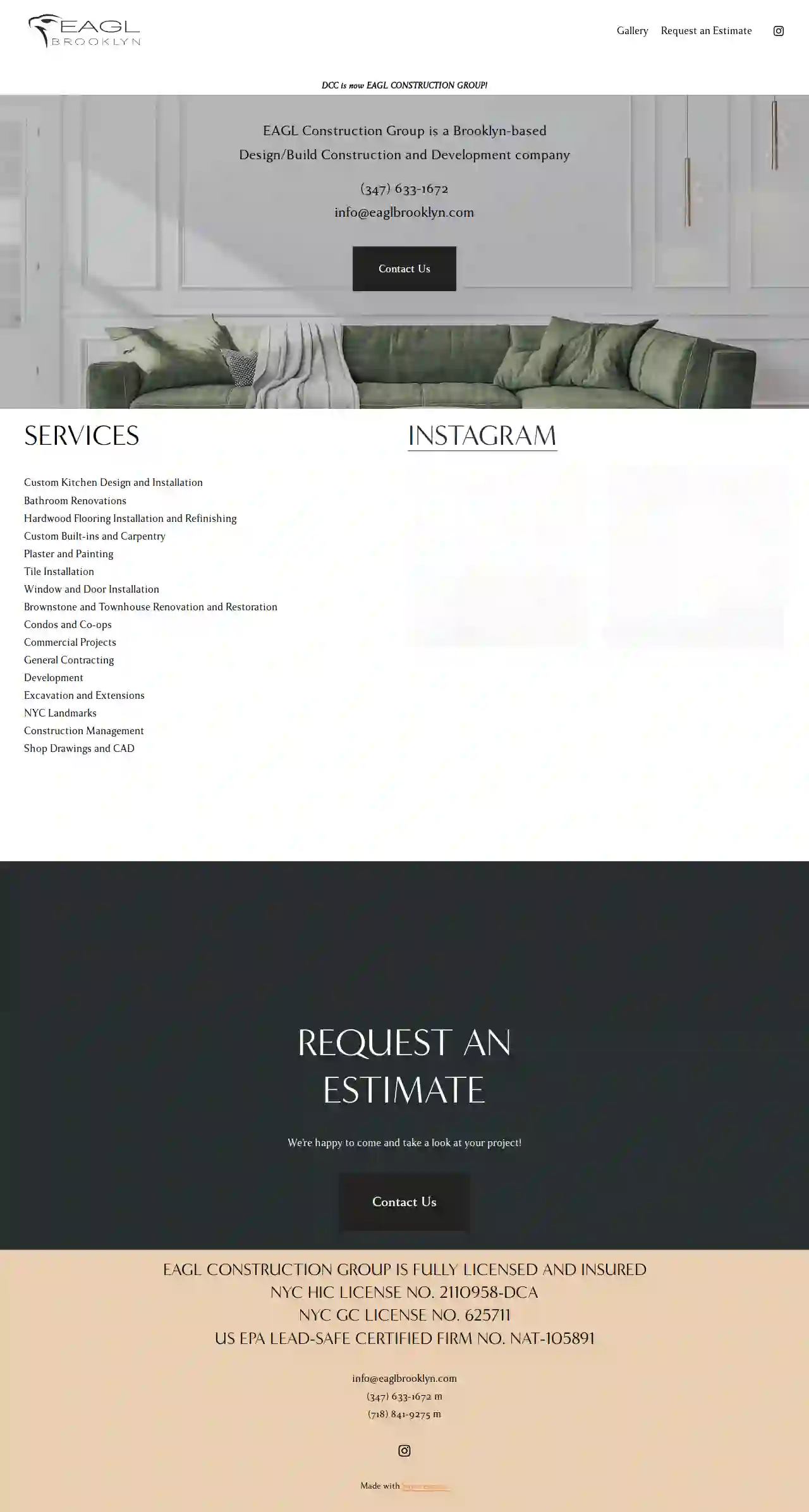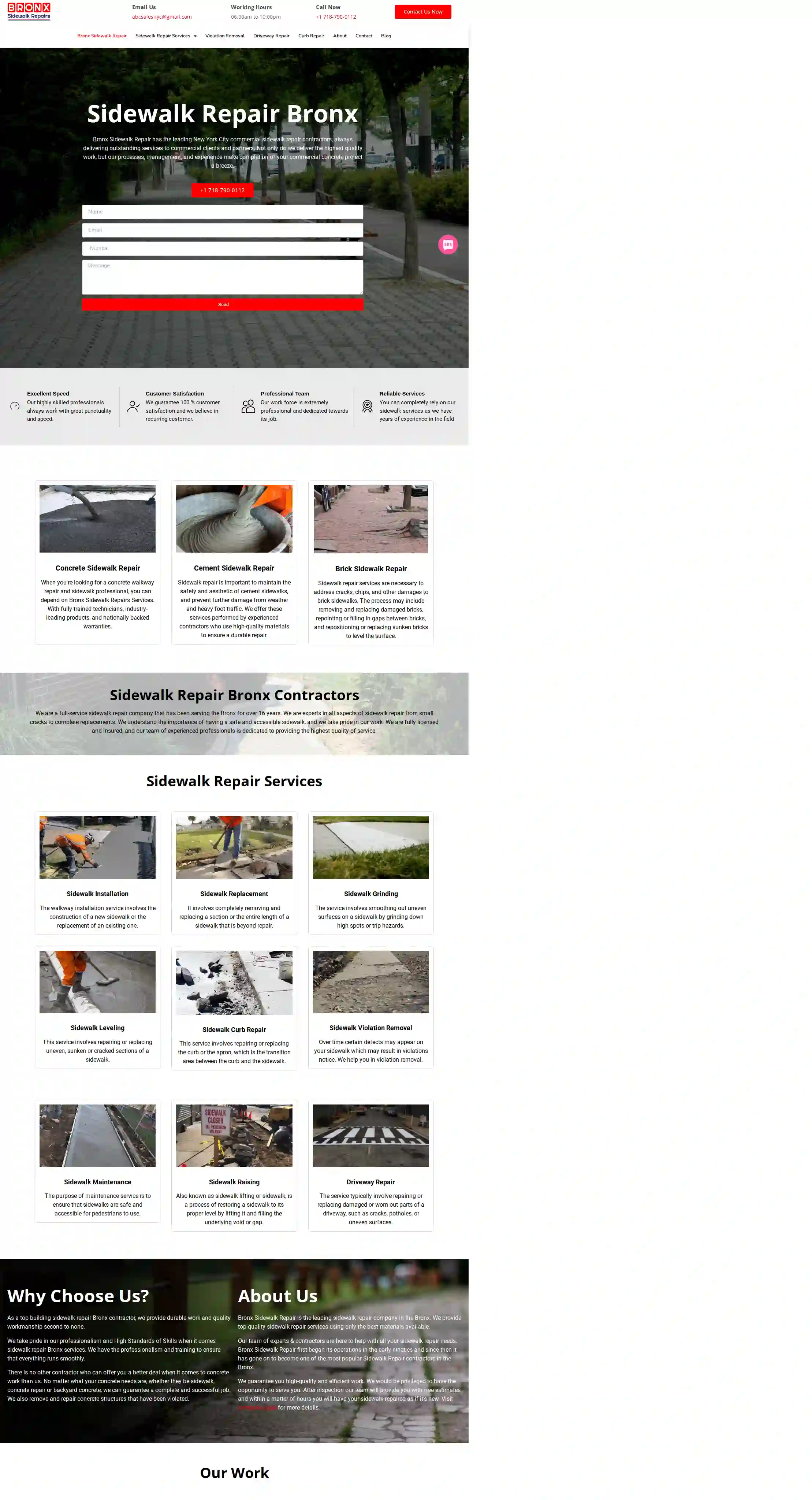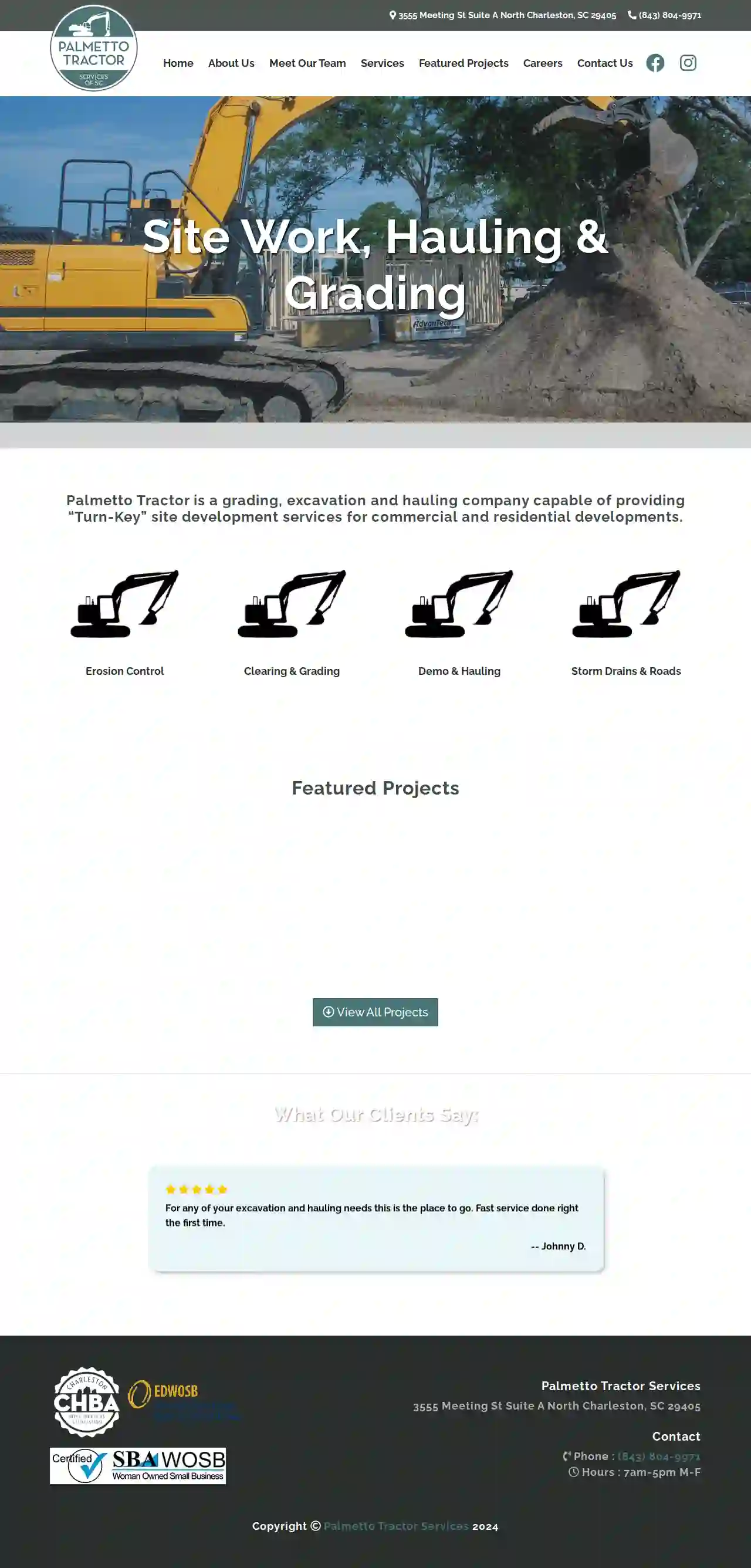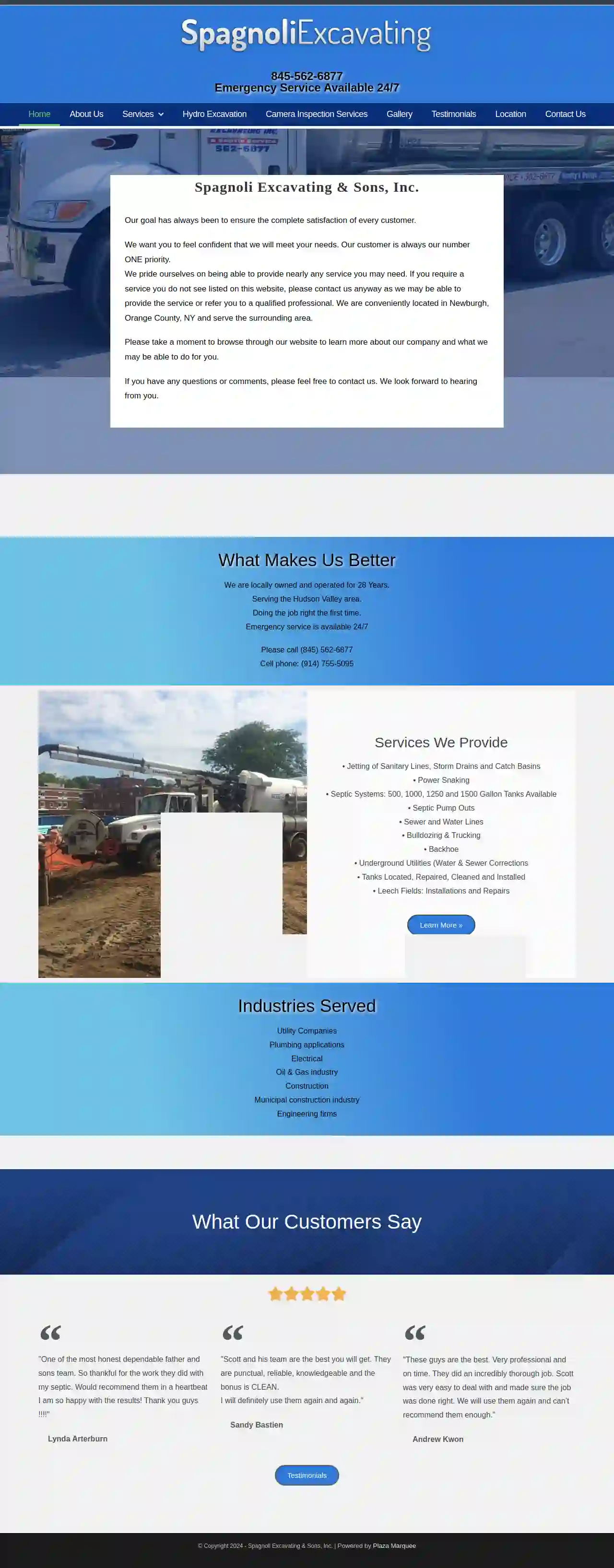Demolition Contractors Orange Lake
Find Demolition Companies in Orange Lake
Get up to 3 Demolition Companies quotes for your project today! Compare profiles, reviews, accreditations, portfolio, etc... and choose the best deal.

Ground Control Excavating Inc.
3.73 reviewsWarwick, USComplete Site Development, Excavation, & More… We provide complete land and site development services for projects of all sizes, including government, commercial, public, private, emergency, and residential projects. Ground Control Excavating, Inc. offers complete excavation services for residential and commercial projects. A premiere land-site excavating contractor, as well as, first-responder for emergencies and natural disasters in the NY area, we are committed to providing the highest level of quality to our customers throughout Orange, Sullivan, Rockland, Westchester counties and the entire Hudson Valley, NY area. GCE is based out of Warwick, NY. We provide complete site development, road development, rock hammering, rock crushing, concrete recycling, underground utilities, septic systems, drainage, top soil, and much more. We service Warwick, Monroe, Middletown, Goshen, Newburgh and the entire Hudson Valley. Experienced Construction Professionals We will work with you to achieve a common goal on time and on budget!
- Services
- Why Us?
- Gallery
Get Quote
Buraq Construction Inc
571 reviews1307 Foster Ave, Brooklyn, 11230, USAbout Us Buraq Construction Company was established to offer general construction business in New York City, and has been giving excellent service for more than 10 years. We are the specialists in luxury construction services of the highest standard and safety while keeping up the same standards and quality. Our experienced team is well-versed in navigating the complexities of city regulations and addressing violations efficiently and effectively.
- Services
- Why Us?
- Gallery
Get Quote
Apex Excavating & Construction Services, LLC
517 reviewsClay, USWelcome to Apex Excavating & Construction Services, LLC We are a team of experienced professionals committed to delivering top-quality services to our clients. Our company specializes in excavation, site preparation, and construction services in Greensboro & The Piedmont. We hold an unlimited general contractors license, so we can work on any project, no matter the size and scope. If you want to build ANYTHING, we can help. We may have started in site development, but our customers kept asking if we could build their driveway or help stand up a shed in their yard. So we added construction services to our offerings. We started small and as we grow, we strive to maintain our small company feel. By strategically partnering with skilled tradesmen in North Carolina, we maintain the flexibility of a small business, while being able to scale to meet the demands of big projects. Our mission is simple: To provide our customers with exceptional service, quality workmanship, and a smooth construction experience from start to finish. Whether you’re a homeowner, business owner, or contractor, we are committed to delivering outstanding value and exceeding your expectations in everything we do. We’re Apex Excavating & Construction Services, a family owned and locally operated construction and site development company in Greensboro, NC. We’ve been tearing up the ground and building things in the Piedmont for years, and we’re proud to be a part of the community. We’re committed to providing our customers with the highest quality services at a fair price. We’re also committed to safety, and we take every precaution to ensure that our employees and customers are safe on the job site.
- Services
- Why Us?
- Gallery
Get Quote
EAGL Construction Group LLC
52 reviewsBrooklyn, USEAGL Construction Group is a Brooklyn-based Design/Build Construction and Development company. We specialize in a wide range of services, from custom kitchen design and installation to bathroom renovations, hardwood flooring, and more. We also offer general contracting, development, excavation, and extensions for both residential and commercial projects. Our team of experienced professionals is dedicated to providing our clients with the highest quality workmanship and customer service. We are fully licensed and insured, and we are committed to exceeding your expectations. Whether you are looking to renovate your bathroom, build a new kitchen, or simply need help with a small repair, EAGL Construction Group is here to help. Contact us today for a free consultation.
- Services
- Why Us?
- Gallery
Get Quote
Christiana Excavating Co.
4.610 reviews2016 Sunset Lake Road, Newark, 19702, USAbout Us Christiana Excavating Co. was founded in 1989 by Mike Connor and later joined by his brother, Paul Connor, in 2001. Teamed with a great staff, the company grew exponentially into the successful business it is today. CEC is a leading site excavating and underground utilities contractor serving all three counties in Delaware. The Connor brothers’ handshake business men reputation stands true today and is evident in every project they carry across the finish line. The valuable lessons and knowledge gained over the years by Mike and Paul Connor, has been dutifully passed down to CEC’s key personnel, and is an integral part of partnering with their clients. Christiana Excavating is a preferred site development contractor performing large scale residential and commercial projects. With hard work, diligence, and customer satisfaction a priority, great working relationships with clients and colleagues in the industry have been established. Christiana Excavating’s impressive fleet consists of excavators and dozers of all scales, a crusher to provide approved recycled aggregate for GABC placements, curb machine and highly integrated GPS systems in equipment for efficiency. CEC believes in offering quality work done correctly and efficiently, while staying within budget and focusing on safety. Safety is of paramount importance to our employees and our colleagues on the job site.
- Services
- Why Us?
- Our Team
- Gallery
Get Quote
LONG ISLAND EXCAVATION
240 Elwood Road, East Northport, 11731, USBongiorno's Contracting Professional groundwork and excavation service from one of the leading construction excavation companies in New York. There is a lot more to groundwork than just moving earth. Our extensive experience ensures that all concerns and laws relating to the environment, civil engineering and health and safety are taken into account to give you peace of mind. Reasons for Choosing Our Company Established 70 years in business on Long Island Licensed and Insured Home Improvement Contractors No Sub-Contracting, All the work is done by our team Many Recent Job References Family Owned and Operated Using only quality materials Forms of Payments Excepted: Credit Cards (VISA, Mastercard, American Express, Discover), Personal checks, Cashier Checks. Suffolk County Home Improvement License 9615-H Our Team (Left to Right) Charles F. Bongiorno 111 - Charles F. Bongiorno Jr. - Charles F. Bongiorno Sr. Corporate Office Chuck Bongiorno As. Bs. Ms. 240 Elwood Road East Northport, New York 11731 Business Phone: (631) 368-9086 Cell Phone: (631) 848-3190 Yard: (631) 368-8123 Email: [email protected]
- Services
- Why Us?
- Our Team
- Gallery
Get Quote
Bronx Sidewalk Repair
4.913 reviewsBronx, New York, USBronx Sidewalk Repair: Your Trusted Partner for Safe and Durable Sidewalks Bronx Sidewalk Repair stands as a leading provider of commercial sidewalk repair services in New York City. We are dedicated to delivering exceptional service to our valued commercial clients and partners. Our commitment extends beyond delivering high-quality work; we prioritize efficient processes, expert management, and extensive experience to ensure your commercial concrete project is a seamless success. Why Choose Bronx Sidewalk Repair? Excellent Speed Our highly skilled professionals are committed to working with exceptional punctuality and speed. Professional Team Our workforce is exceptionally professional and dedicated to their work. Customer Satisfaction We guarantee 100% customer satisfaction and believe in fostering long-term relationships with our clients. Reliable Services You can confidently rely on our sidewalk services, backed by years of experience in the field.
- Services
- Why Us?
- Gallery
Get Quote
Site Right Excavation, LLC
123 Main Street, Anytown, 12345, USSite Right Excavation: Your Trusted Partner for Excavation Services Site Right Excavation is a family-owned and operated business with over 20 years of experience in the excavation industry. We are committed to providing our clients with high-quality, reliable, and affordable excavation services. Our team of experienced professionals is dedicated to exceeding your expectations and delivering exceptional results. We understand that every project is unique, and we take the time to listen to your needs and develop a customized plan that meets your specific requirements. Whether you need site preparation, foundation excavation, utility installation, or any other excavation service, we have the expertise and equipment to get the job done right. At Site Right Excavation, we are committed to safety and environmental responsibility. We use the latest technology and equipment to ensure that our projects are completed safely and efficiently. We also strive to minimize our environmental impact by using sustainable practices and recycling materials whenever possible. Contact us today to schedule a free consultation and learn more about how we can help you with your next excavation project.
- Services
- Why Us?
- Testimonials
Get Quote
Palmetto Tractor & Excavating Services
3555 Meeting St Suite A, North Charleston, 29405, USAbout Palmetto Tractor Services Palmetto Tractor Services of SC LLC is a full-service site work company dedicated to providing high-quality solutions for both residential and commercial projects. We offer a comprehensive range of services, including erosion control, clearing, grading, storm drain installation, utility installation, hardscape installation, and final grading for landscaping preparation. Our commitment to professionalism and problem-solving ensures that every construction project is completed to the highest standards, using top-quality materials. We prioritize customer satisfaction and believe in building strong relationships to understand your unique needs. We are passionate about delivering exceptional results and exceeding expectations. Our team of experienced professionals is dedicated to providing reliable, efficient, and cost-effective solutions for all your site work requirements.
- Services
- Why Us?
- Our Team
- Testimonials
- Gallery
Get Quote
Spagnoli Excavating Inc
517 reviews47 South Plank Road, Newburgh, 12550, USSpagnoli Excavating & Sons, Inc. At Spagnoli Excavating & Sons, Inc., our unwavering commitment is to ensure the complete satisfaction of every customer. We strive to provide you with the confidence that your needs will be met, placing our customers as our top priority. We take pride in offering a wide range of services to cater to your diverse requirements. If you need a service not listed on our website, don't hesitate to contact us. We may be able to assist you or refer you to a qualified professional. Conveniently located in Newburgh, Orange County, NY, we serve the surrounding area. Explore our website to learn more about our company and the services we can provide. Feel free to reach out with any questions or comments. We look forward to hearing from you.
- Services
- Why Us?
- Testimonials
- Gallery
Get Quote
Over 22,076+ Excavation Businesses onboarded
Our excavation pros operate in Orange Lake & surroundings!
ExcavationHQ has curated and vetted the Best Excavation Businesses near Orange Lake. Find a top & trustworthy business today.
Frequently Asked Questions About Demolition Contractors
- Feasibility Studies: Assessing the viability and challenges of a demolition project.
- Demolition Planning: Developing demolition plans, including method selection, sequencing, and safety procedures.
- Permitting Assistance: Navigating the demolition permitting process and ensuring compliance with regulations.
- Hazardous Material Surveys: Identifying and managing hazardous materials, such as asbestos and lead paint.
- Cost Estimating: Providing accurate cost estimates for demolition services.
- Project Management: Overseeing the demolition process and ensuring it proceeds as planned.
- Clear the Site: Remove all furniture, appliances, personal belongings, and any valuable items from the structure.
- Secure the Perimeter: Fence off the demolition area to prevent unauthorized access and protect surrounding property.
- Disconnect Utilities: Arrange for the disconnection of electricity, gas, water, and other utilities servicing the building.
- Hazardous Material Abatement: If asbestos, lead paint, or other hazardous materials are present, have them professionally removed before demolition begins.
- Notify Neighbors: Inform your neighbors about the demolition schedule to minimize disruptions and address any concerns.
- Obtain Permits: Ensure all necessary demolition permits are in place before starting work.
- Recycling: Concrete, brick, metal, and wood can be recycled and reused in other construction projects, reducing waste sent to landfills.
- Landfill Disposal: Non-recyclable materials are disposed of in designated landfills according to local regulations.
- Donation: Some materials, such as fixtures or appliances, may be suitable for donation to charitable organizations.
What is a demolition bond?
What is the role of a demolition consultant?
How do I prepare my property for demolition?
What happens to the debris after demolition?
What is a demolition bond?
What is the role of a demolition consultant?
- Feasibility Studies: Assessing the viability and challenges of a demolition project.
- Demolition Planning: Developing demolition plans, including method selection, sequencing, and safety procedures.
- Permitting Assistance: Navigating the demolition permitting process and ensuring compliance with regulations.
- Hazardous Material Surveys: Identifying and managing hazardous materials, such as asbestos and lead paint.
- Cost Estimating: Providing accurate cost estimates for demolition services.
- Project Management: Overseeing the demolition process and ensuring it proceeds as planned.
How do I prepare my property for demolition?
- Clear the Site: Remove all furniture, appliances, personal belongings, and any valuable items from the structure.
- Secure the Perimeter: Fence off the demolition area to prevent unauthorized access and protect surrounding property.
- Disconnect Utilities: Arrange for the disconnection of electricity, gas, water, and other utilities servicing the building.
- Hazardous Material Abatement: If asbestos, lead paint, or other hazardous materials are present, have them professionally removed before demolition begins.
- Notify Neighbors: Inform your neighbors about the demolition schedule to minimize disruptions and address any concerns.
- Obtain Permits: Ensure all necessary demolition permits are in place before starting work.
What happens to the debris after demolition?
- Recycling: Concrete, brick, metal, and wood can be recycled and reused in other construction projects, reducing waste sent to landfills.
- Landfill Disposal: Non-recyclable materials are disposed of in designated landfills according to local regulations.
- Donation: Some materials, such as fixtures or appliances, may be suitable for donation to charitable organizations.